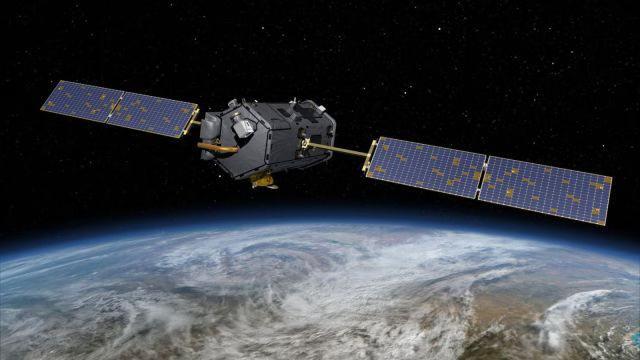
Trump-led US Govt to Shut Down NASA’s Carbon Monitoring Missions
The United States is set to shut down two NASA missions that play a crucial role in monitoring carbon dioxide emissions. The Orbiting Carbon Observatory (OCO) program, which includes a free-flying satellite and a high-precision instrument attached to the International Space Station (ISS), is facing the axe under President Trump’s proposed budget for 2026. The news has sent shockwaves across the scientific community, as the OCO missions have been instrumental in tracking the rise of CO2 levels in the atmosphere, a key indicator of climate change.
The Orbiting Carbon Observatory, launched in 2014, was designed to measure the concentration of CO2 in the atmosphere from space. The mission aimed to provide scientists with a better understanding of how carbon dioxide is distributed globally, and how it is affecting the Earth’s climate. The satellite, which is about the size of a small car, carries a suite of instruments that can detect CO2 levels in the atmosphere with unprecedented precision.
The OCO-2 satellite has been instrumental in tracking the growth of CO2 levels in the atmosphere, which has increased by about 40% since the Industrial Revolution. The mission has also helped scientists to identify the sources of CO2 emissions, including deforestation, fossil fuel burning, and land-use changes.
The high-precision instrument attached to the ISS, known as the Tropospheric Emissions: Monitoring of Pollution (TEMPO) instrument, is designed to measure the concentration of CO2 and other pollutants in the atmosphere. The instrument is equipped with advanced spectroscopy technology that allows it to detect even small changes in CO2 levels.
The shutdown of the OCO missions has been condemned by climate scientists and environmental groups, who argue that it will undermine efforts to combat climate change. “The Orbiting Carbon Observatory is a critical tool for understanding the global carbon cycle and for tracking the progress of climate change,” said Dr. Kevin Trenberth, a climate scientist at the National Center for Atmospheric Research. “Shutting it down will make it much harder for us to understand the problem and to develop effective solutions.”
NASA officials have acknowledged the importance of the OCO missions, but have cited budget constraints as the reason for the shutdown. “The Orbiting Carbon Observatory is a valuable program, but it is a costly one,” said NASA Administrator Jim Bridenstine. “We have to make tough decisions about how to allocate our resources, and unfortunately, the OCO program is one that we will have to cut.”
However, NASA is offering a glimmer of hope by accepting outside proposals through August 29 to keep the TEMPO instrument operational. The agency is seeking proposals for funding to support the continued operation of the instrument, which could potentially be hosted on a commercial satellite or on a future NASA mission.
The news of the shutdown has sparked concerns about the impact on climate research and policy. “The Orbiting Carbon Observatory is a critical tool for understanding the global carbon cycle and for tracking the progress of climate change,” said Dr. Trenberth. “Shutting it down will make it much harder for us to understand the problem and to develop effective solutions.”
The shutdown of the OCO missions is also seen as a blow to international efforts to combat climate change. The Paris Agreement, signed in 2015, aims to limit global warming to well below 2°C above pre-industrial levels and pursue efforts to limit it to 1.5°C. The OCO missions have played a crucial role in monitoring the progress of climate change and in developing effective strategies to reduce greenhouse gas emissions.
In conclusion, the Trump-led US government’s decision to shut down NASA’s carbon monitoring missions is a step backwards in the fight against climate change. The Orbiting Carbon Observatory has been a critical tool for understanding the global carbon cycle and for tracking the progress of climate change. The shutdown of the missions will undermine efforts to combat climate change and will make it harder for scientists to develop effective solutions. It is imperative that the US government reconsider its decision and find alternative funding sources to support the continued operation of the OCO missions.






